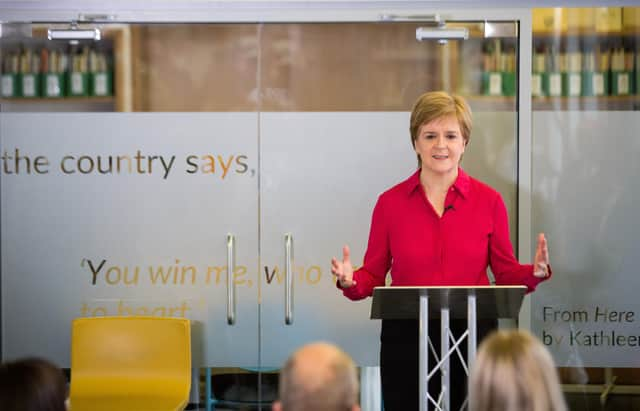Scottish independence: The cost of leaving the UK would fall heaviest on the poorest communities – Pamela Nash


This was once again confirmed this week in the latest Government Expenditure and Revenue Scotland (GERS) figures, detailing money raised and spent in Scotland – and providing some insight into what financial challenges a separate Scotland would face should this ever happen.
And while it is claimed by some to be skewed by Covid, the trend hasn’t changed.
Advertisement
Hide AdAdvertisement
Hide AdIn 2020-21, living in the UK was worth an extra £2,210 on average for every person in Scotland, but it has been around that mark for many years.
Last year, a staggering £100 billion was spent in Scotland, not only funding vital public services but ensuring around a million jobs were protected, the NHS had the resources to keep us all safe, and we could implement a successful UK-wide vaccination programme.
The last financial year was an exceptional period where governments across the world borrowed more to help their citizens through the Covid crisis.
Had Scotland been a newly separate country, we would still have been able to implement emergency financial support during the pandemic.
But there would be an important difference.
We would be doing so without the safety net of the reserves and international borrowing power that we have in the UK.
Nationalists try to dismiss this, but it is hugely important. Without this, borrowing money is much more expensive and this would have to be paid for down the line.
In addition, if Nicola Sturgeon had her way, she would be starting off on a recovery mission with a deficit of 22.4 per cent of GDP, compared to just 14.2 per cent across the entire UK.
And for what? Why turn our back on the security of a future within the UK that allows us to invest in our people?
Advertisement
Hide AdAdvertisement
Hide AdThe UK’s system of pooling and sharing resources and risk, and the strength of our economy and our pound, protected us over the pandemic, as it always has in difficult times.
Senior nationalists are currently agitating to re-open old arguments about a referendum.
Faced with such an economic challenge ahead of us, this is a gross insult to all those who have sacrificed so much and want to ensure a bright future lies ahead.
Recovery will take many years, and by using the strength of our collective UK economy and the pound we can ensure that no community is left behind.
The SNP’s response to GERS is always the same – it’s only a snapshot of the starting point for an independent Scotland.
That’s true, so let’s have some much-needed honesty from the SNP.
Over the last year, there has been over £36 billion available for us to spend as part of the UK. We have heard nothing from the SNP on how this money would be raised if we left.
The poorest communities in Scotland should not be treated as expendable in the SNP’s quest for separation.
Advertisement
Hide AdAdvertisement
Hide AdIt would all be for nothing, when right now we can bring people together and build a recovery for every community in every part of the UK.
Pamela Nash is chief executive of Scotland in Union
A message from the Editor:
Thank you for reading this article. We're more reliant on your support than ever as the shift in consumer habits brought about by coronavirus impacts our advertisers.
If you haven't already, please consider supporting our trusted, fact-checked journalism by taking out a digital subscription.
Comments
Want to join the conversation? Please or to comment on this article.
